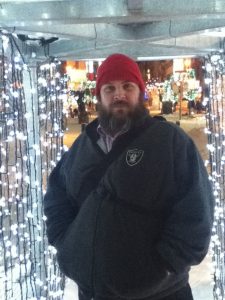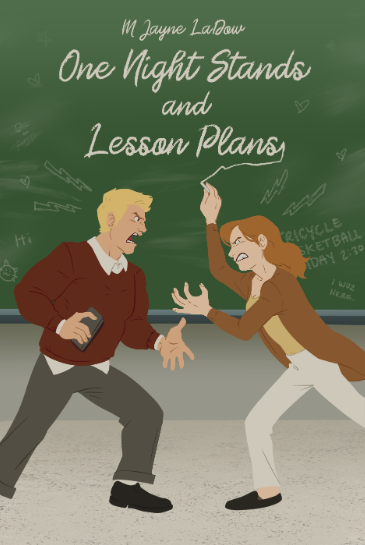This post is part of a virtual book tour organized by Goddess Fish Promotions. Chad Musick will be awarding a $25 Amazon/BN GC to a randomly drawn winner via rafflecopter during the tour. Click on the tour banner to see the other stops on the tour.
Not My Ruckus is a book in which the characters go through a lot of trauma. Reviews have called it “sharp”, “brutal”, “brutal”, and “brutal” (it’s come up a few times), but most readers have agreed that it’s not a book about trauma. Bringing in trauma without making it the central theme was something I spent a lot of time working out with my critique partners. Clare, the main character, draws on a lot of my own life, though skewed in some ways. This is not an autobiography.
There are three big parts of the background to the book. One is the physical place and time. The whole story takes place in a year in Texas in a fictional town in 1980 and 1981. I spent part of my childhood in East Texas, and the town is patterned after a lot of small towns that I have been to. These towns have a sharp sense of place, but also seemed to me like they could be anywhere. Some experiences that I thought were universal when I was young are, I’ve been told, not actually universal. The wildlife was always there: scrub jays, crawdads, crickets, ants, and other crawly things. And the sense of being completely isolated from neighbors that lived next door but close to those who might live farther away. Now, I associate that with age: I only cared about neighbors who were my own age.
A second part of the background is disability. And this is “spoiler” territory, but … not really? Clare is autistic and epileptic, like me. Because we’re seeing the world through her eyes, we get a very limited perspective. She doesn’t pick up on social cues – she’ll notice the actions, but not know how to interpret them. She has memory loss, so some things that she should remember, she just doesn’t. All of this is interior to her as a character, so there’s only a little of her saying “Wait a minute, my body isn’t doing what I want it to,” and that’s related to a temporary condition. When you have congenital disability, it just seems normal. I’ve tried to show it without dwelling in it. I don’t dwell in it in my everyday life, even though I talk about it on social media.
The last part of the background is child abuse. Read the content notes before you read the book, definitely. They’re on the publisher’s website and also in the book itself. (They’re not obvious in the audiobook sales pages, which is regrettable.) I’m not going to write about it in detail, but it’s astonishing to me to see things that I just assumed were normal as a kid (in the 1970s) making the national news when parents do them now. Times have changed, and in many ways for the better.
The brief version of the background: In 1980, there was a Texas girl who got kissed by the girl next door and then things went badly.
Folks know 14-year-old Clare isn’t normal, even for a tomboy. She runs too much, talks too little, carries a gun too often, and holds a grudge forever. Only her papa’s job at the bank keeps gossip quiet. It’s unwise to risk the cold anger of the man who knows everyone’s secrets.
Clare feels prepared for everything from fire, to flood, to what her momma calls demon attacks. When her neighbor Esther kisses her, though, Clare has no ready script. Maybe she could write one, given time she doesn’t have. At the moment of that first kiss, Esther’s mom is bleeding out from a gunshot wound.
Clare can read the signs everyone else is determined to ignore. A murder was only the beginning. Esther needs protection, whether she wants it or not, and Clare won’t abandon her friend just because things are hard.
Maybe one day she’ll be forgiven for doing what’s needed.
Enjoy an Excerpt
I was watching the sunlight coming through the clerestory— with the attic gone, its windows got a fancier name—creeping ever closer to the edge of the oriental when the doorbell rang.
I peeped through the hole and opened the door for Esther. Papa had said I couldn’t leave, but he hadn’t forbidden me company. She came in without even a howdy, which is what best friends can do, I guess.
She started crying hard and pulling heavy on my neck and blubbering up her words. Finally I figured out she was saying “She’s dead,” over and over.
Esther just wanted to cry a bit and not talk, so we went back to my bedroom. I pulled back the covers and let her crawl in, and then I covered her up and sat on the bed. The canopy was making the light hazy, and I could see the sunbeam traced in dust. Momma didn’t approve of dust, so I should probably clean it up before she got back, but I hoped she’d understand that your friends are more important.
Cleanliness might be next to Godliness, but people must matter at least a bit.
Esther calmed down after a while, except for the occasional sniffle.
“My mom died yesterday.”
I was the world’s worst friend. I had been so relieved momma was okay that I hadn’t even checked on Esther. Me being upset made her cry again, and we went back and forth like that for a long time.
About the Author:  Chad Musick grew up in Utah, California, Washington, Texas, and (most of all) Alaska. He fell in love in California and then moved with his family to Japan, where he’s found happiness. He earned a PhD in Mathematical Science but loves art and science equally.
Chad Musick grew up in Utah, California, Washington, Texas, and (most of all) Alaska. He fell in love in California and then moved with his family to Japan, where he’s found happiness. He earned a PhD in Mathematical Science but loves art and science equally.
Despite a tendency for electronic devices to burst into flame after Chad handles them, he persists in working in various technical and technology-related roles.
Chad makes no secret of being epileptic, autistic, and arthritic, facts that inform how he approaches both science and the arts.
Buy the book at Amazon













Thanks for hosting!
When I read a book review, I always like to learn about the author.
This sounds like a really good book!
Sounds like a very interesting book.